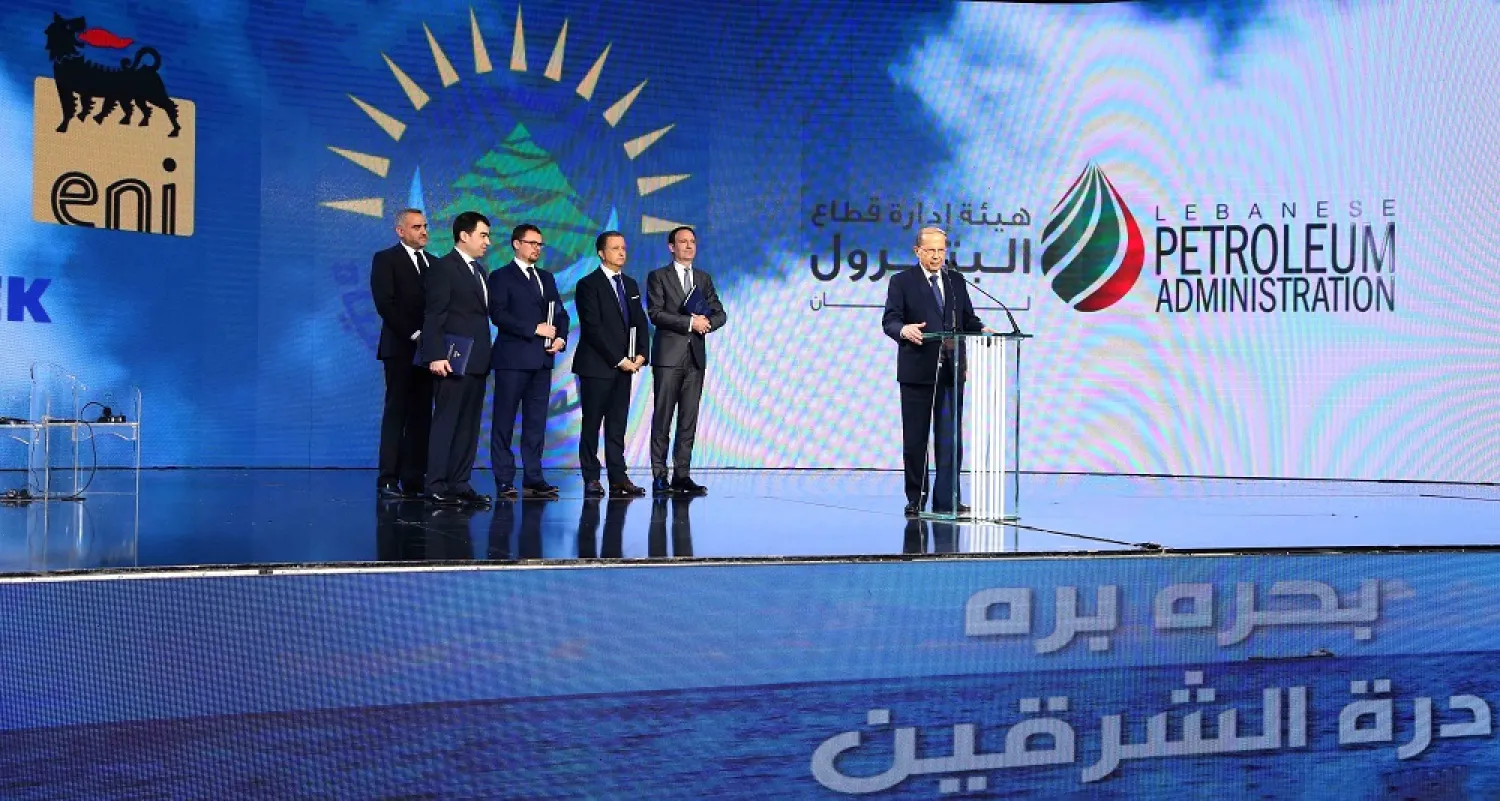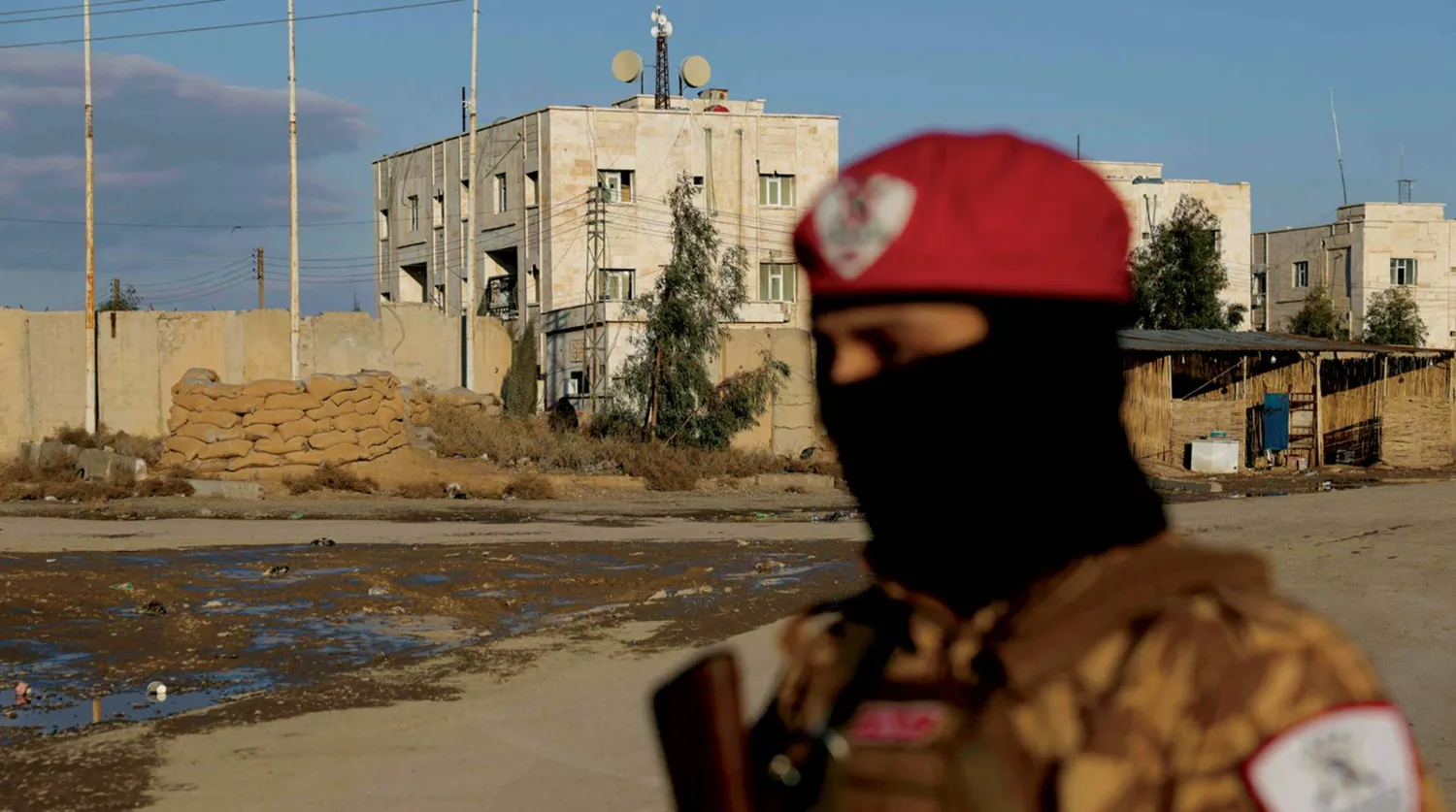Amid a simmering dispute with Israel over the demarcation of the shared marine border, Lebanon signed on Friday its first agreements for offshore oil and gas exploration.
The deal includes exploration in two blocks, including one that is contested with Israel.
The signing ceremony was held Friday afternoon in Beirut and was attended by President Michel Aoun.
"We have achieved a big dream and Lebanon has entered a new era today," Aoun said at the ceremony.
A consortium of France’s Total, Italy’s Eni and Russia’s Novatek signed the agreements for the two blocks, which are among five that Lebanon put up for tender in the country’s much-delayed first licensing round.
Lebanon’s energy minister said the dispute with Israel would not stop Lebanon benefiting from potential undersea reserves in the contentious Block 9, while consortium operator Total said it would not drill the block’s first well near the disputed zone.
Israel and Lebanon, which regard each other as enemy states, have exchanged threats and condemnation over the tender, amid rising tensions over territorial and marine boundaries between them.
“Today, we announce that we have started our petroleum path ... after signing the agreements and launching the exploration activities,” Lebanese Energy Minister Cesar Abi Khalil said at a ceremony in Beirut.
The contracts had already been signed on January 29.
Data suggests there are reserves in Lebanon’s waters, but no exploratory drilling has taken place to estimate their size.
Abi Khalil has said a second offshore licensing round will happen once the first commercially viable discovery is made.
The first exploratory well will be drilled in Block 4 in 2019, said Stephane Michel, Total’s head of exploration and production in the Middle East and North Africa.
The second well will be drilled in Block 9 more than 25 km (15 miles) from the maritime border claimed by Israel, he said at the ceremony. “There is no reason not to proceed in this way,” Michel added.
Lebanon has an unresolved maritime border dispute with Israel over a triangular area of sea of around 860 sq km (330 square miles) that extends along the edge of three of its total 10 blocks.
Total said in a statement the disputed waters comprise 8 percent of Block 9 and that its exploration well “will have no interference at all with any fields or prospects” in the disputed sliver of water.
Lebanese and Israeli officials said David Satterfield, acting assistant US secretary of state, was in Israel last week and in Lebanon this week on a mediation mission. US officials confirmed his travels without detailing his agenda.
Abi Khalil told Reuters the heightened tension between the two countries in recent weeks has “not had an effect” on the consortium’s plans to explore.
Lebanon's Foreign Minister Jebran Bassil warned Israel not to try to hinder the drilling on the Lebanese side saying that Beirut can also stop offshore development on the Israeli side.
Earlier this week, Israeli Defense Minister Avigdor Lieberman described Lebanon's exploration tender as "very provocative" and suggested that Lebanon had put out invitations for bids from international groups for a gas field "which is by all accounts ours."
His comments drew sharp condemnation from Prime Minister Saad Hariri, who described Lieberman's comments as a "blatant provocation that Lebanon rejects."
Lebanon is on the Levant Basin in the eastern Mediterranean where a number of big sub-sea gas fields have been discovered since 2009.
Eni reported the Mediterranean’s largest discovery in 2015: the Zohr field off Egypt which holds an estimated 30 trillion cubic feet of gas. On Thursday Eni said it and Total had discovered a promising natural gas field off Cyprus.
Fuad Krekshi, Eni’s executive vice president of the Middle East, said Eni’s entry into Lebanon’s market is a “natural consequence” of its existing role in the Mediterranean region.
Total, with 40 percent, heads the consortium drilling Lebanon’s first offshore well. Eni also holds 40 percent and Novatek 20 percent.
Vyacheslav Mishin, head of Novatek’s new Lebanon office, said the projected global growth in natural gas and LNG consumption was key to his company’s future growth.
“The Middle East market for LNG consumption is forecast to grow by more than 100 percent by 2030,” he said.
Potential reserves could be used domestically or exported.
Both are attractive for Lebanon which has been short of electricity since its 1975-90 civil war and has an anemic economy battered by war in neighboring Syria and political tensions. Lebanon has a debt of $80 billion or 145 percent of its gross domestic product making it one of the world's highest.
It is also hoped the developing oil and gas industry will create jobs and economic growth. To this end, the EPA contracts say 80 percent of people employed by the consortium should be Lebanese, with priority given to local suppliers and contractors.
But the commercial viability of potential reserves depends on energy market prices, the ability to secure customers and the cost and politics of building export infrastructure.
“For all the fields in the region, there are commercial, political, and technical challenges that hinder exploitation for the purposes of export,” Tareq Baconi, a European Council on Foreign Relations visiting fellow on MENA energy told Reuters.
“Many of the challenges for export will be faced by Lebanon as well when, and if, it discovers offshore reserves,” he said.









